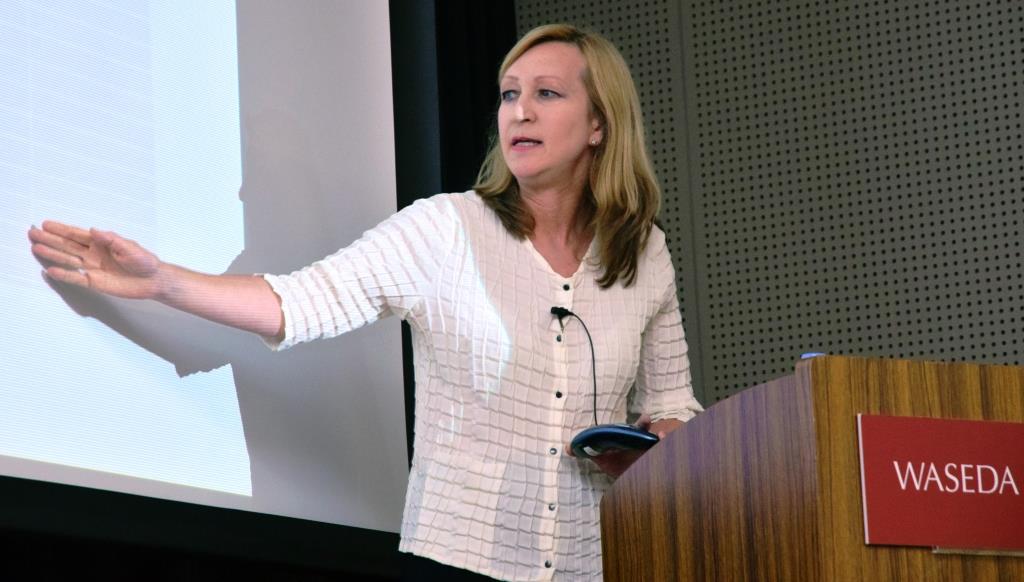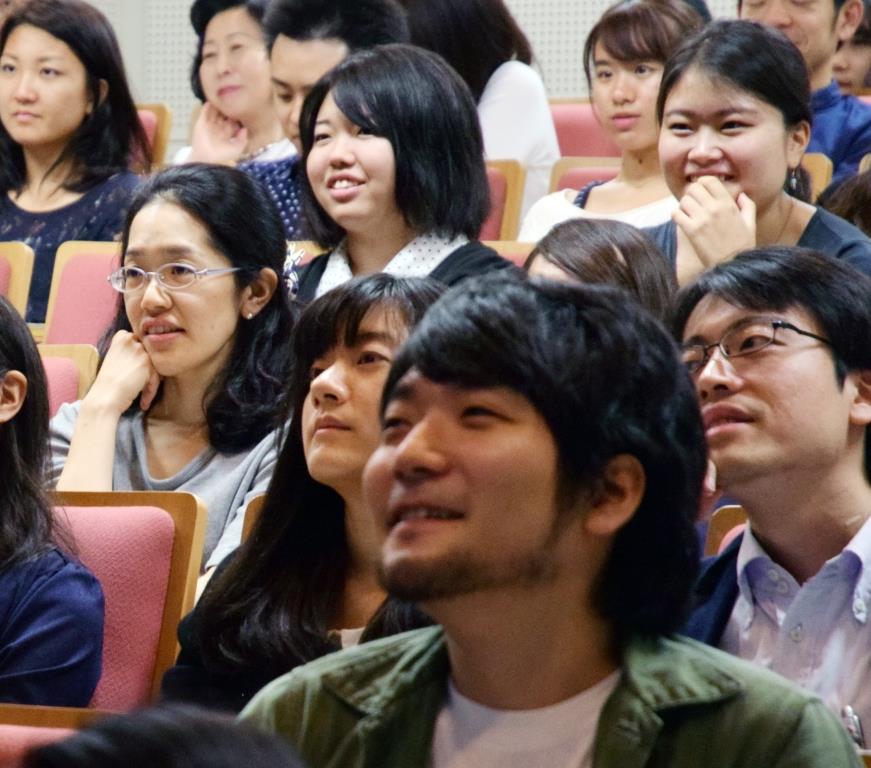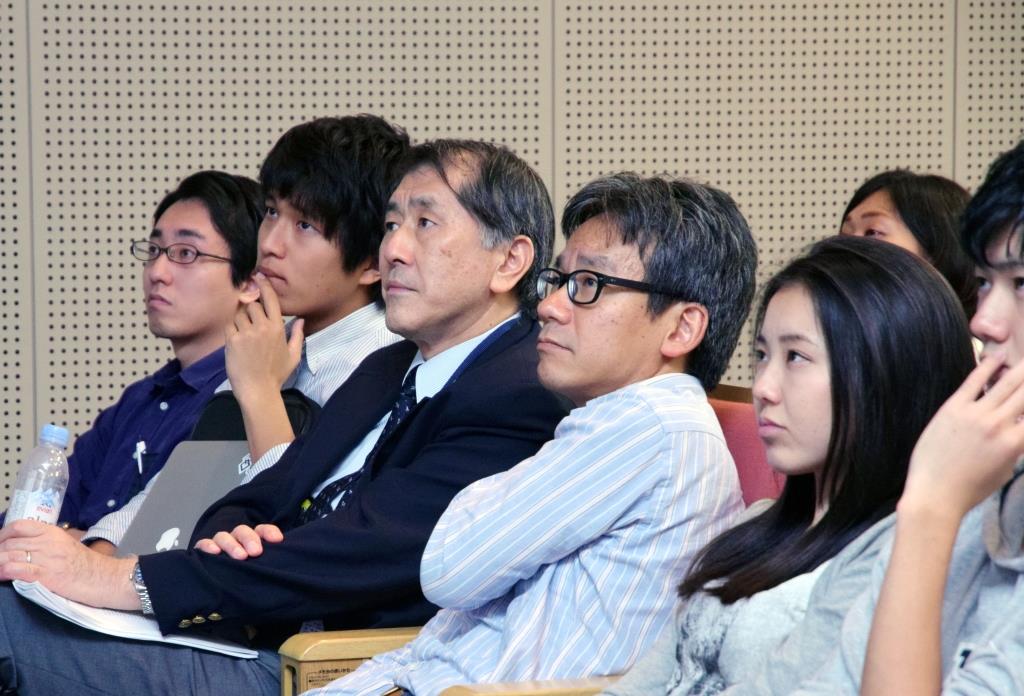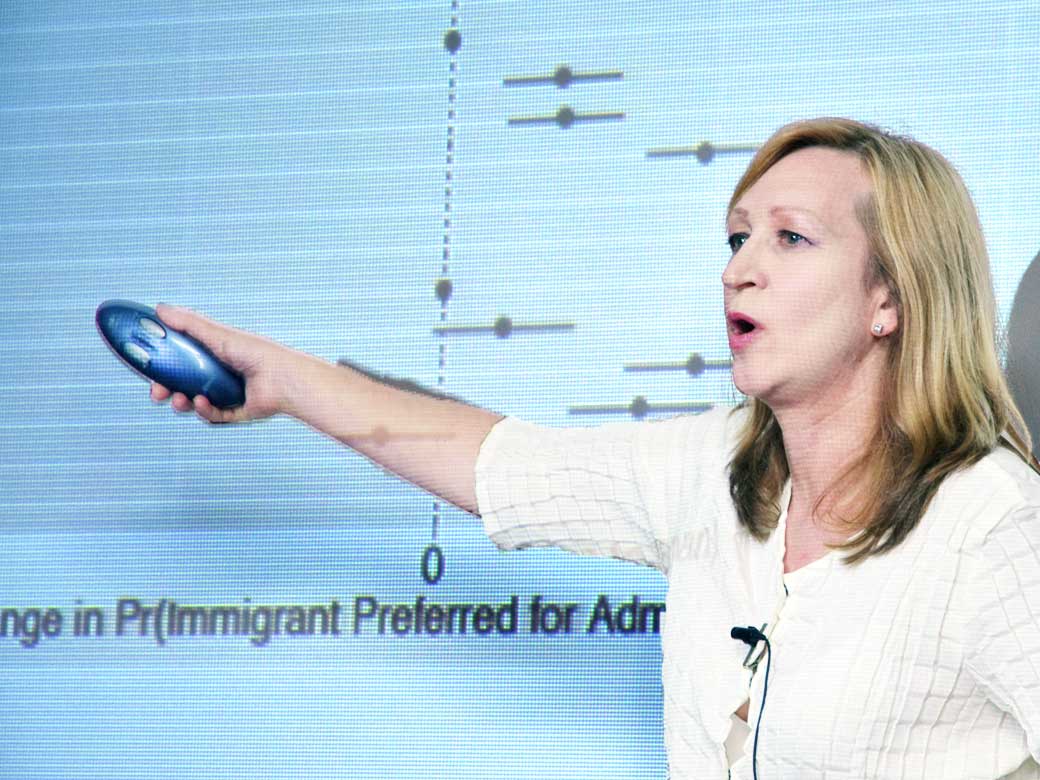Yale’s Rosenbluth speaks on study of Japanese attitudes towards immigrants
Fri, Jul 17, 2015
On July 9, Frances McCall Rosenbluth, Damon Wells Professor of International Politics at Yale University, and a comparative political economist with a special interest in Japan, gave a lecture for students and faculty at Waseda University. This workshop was supported by the Top Global University Project Center for Empirical Analyses of Political Economy.

Following opening remarks from Graduate School of Political Science professor Aiji Tanaka, Dr. Rosenbluth presented her research entitled “Japanese Attitudes towards Immigration: Evidence from a Conjoint Experiment,” a collaborative project with Dr. Seiki Tanaka and Professor Rieko Kage. This research centered on an experiment to clarify the positive/negative attitudes of Japanese respondents depending on various characteristics of immigrants. She concluded that Japanese generally had a “sociotropic” orientation, preferring skilled and educated immigrants, but simultaneously had self-interested fear of a dilution of cultural “purity” combined with specific concerns about competition for wages or jobs.

GSPS professor Masaru Kohno gave a short review praising the research, adding several points on its details. He suggested adding consideration of the definition of immigrant, such as inclusion of the family members of immigrant workers, and of the background of immigration law.















